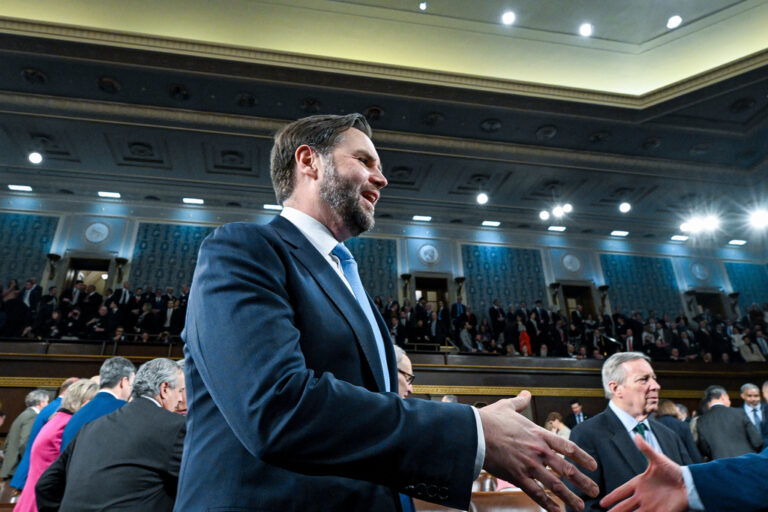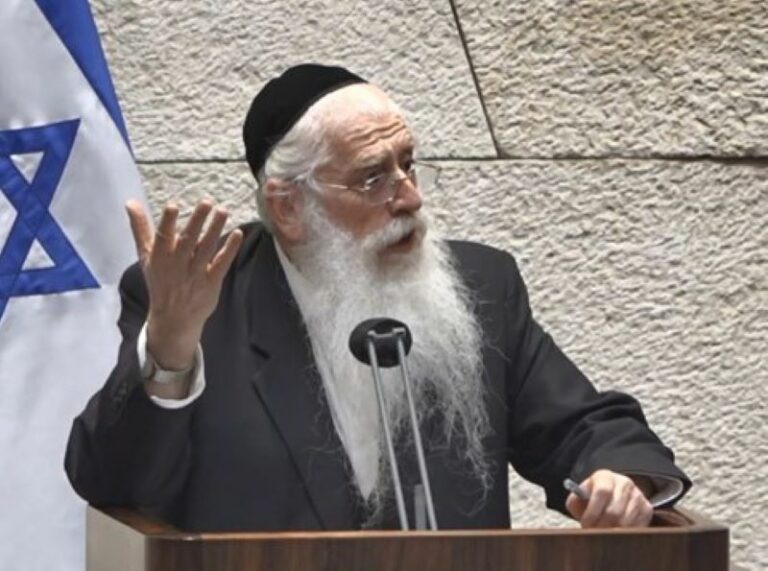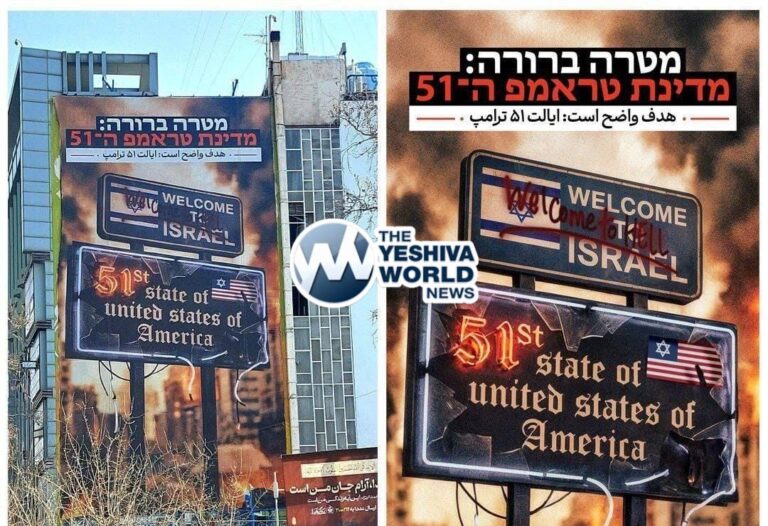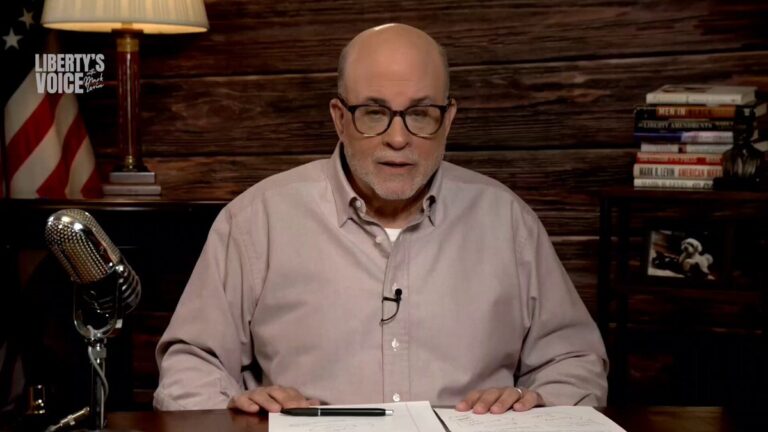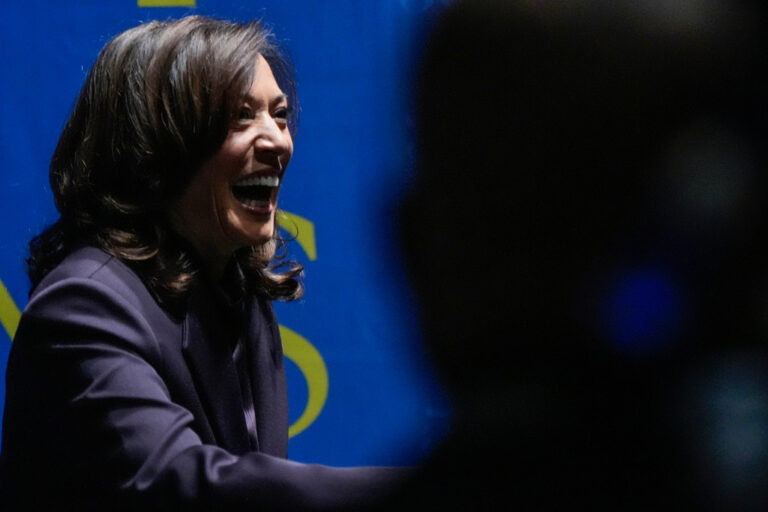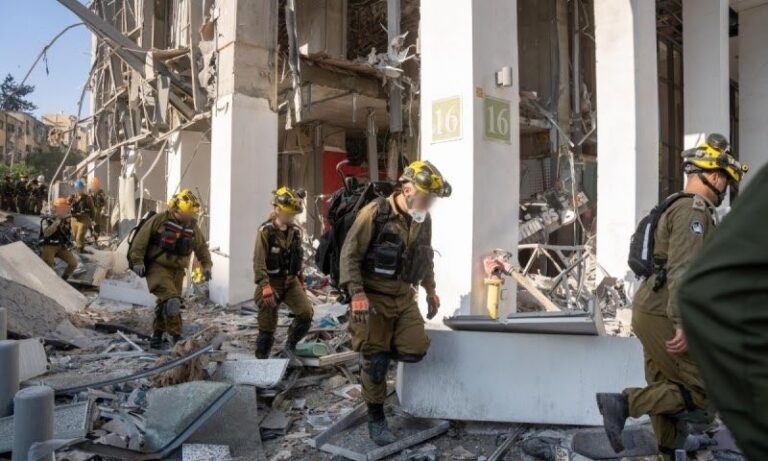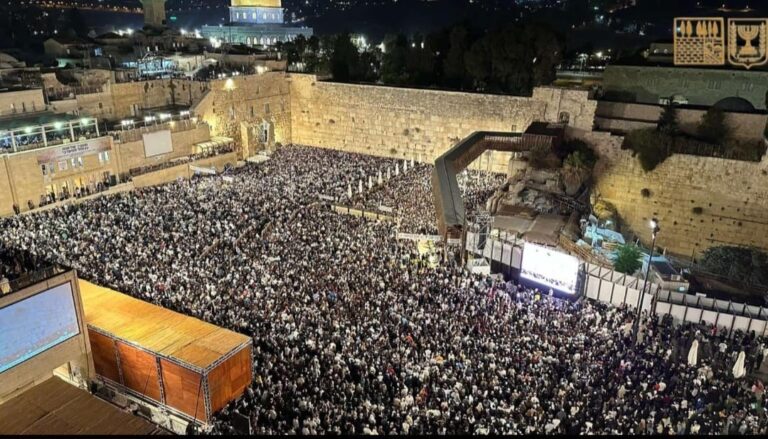As the world marked the 76th anniversary of passing [yahrtzeit] of Rabbi Levi Yitzchak Schneerson, representatives of the governments of the United States and the former Soviet republic of Kazakhstan gathered at the rabbi’s resting place to formally designate it a Kazakh National Heritage site. Rabbi Levi Yitzchak, who was arrested by the Soviet secret police for his Jewish communal leadership, passed away in 1944, physically tortured but spiritually unbroken, in government-imposed exile in Almaty, Kazakhstan, where he is buried.
A renowned Kabbalist and Torah scholar, Rabbi Levi Yitzchak Schneerson, of righteous memory, was the father of the Rebbe, Rabbi Menachem M. Schneerson, of righteous memory. Born in 1878, Rabbi Levi Yitzchak was appointed chief rabbi of the city of Yekaterinoslav, Ukraine, in 1908, where he became a universally beloved figure. Rabbi Levi Yitzchak heroically led his community through the bloodshed of World War I and the ensuing Jewish refugee crisis; the 1917 Russian Revolution and the Bolshevik seizure of power; and the ensuing years of brutal Communist repression of every trace of Jewish life and learning.
Despite the brutal persecution directed at religious leaders during that era, Rabbi Levi Yitzchak remained fearlessly defiant in strengthening Jewish learning and practice in Yekaterinoslav—renamed Dnepropetrovsk in 1926—and throughout the Soviet Union. Following the 1927 arrest and exile of the Sixth Rebbe, Rabbi Yosef Yitzchak Schneersohn, of righteous memory, Rabbi Levi Yitzchak became the Soviet Union’s leading rabbinical figure, holding his post and continuing his work into the darkest years of Soviet despot Joseph Stalin’s reign.
In April of 1939, just days before the holiday of Passover, Rabbi Levi Yitzchak was arrested by the NKVD, Stalin’s secret police, and imprisoned and mercilessly interrogated over a period of nearly a year. In the fall of 1940 he was banished to the desolate village of Chi’ili, Kazakhstan, where he was eventually joined by his devoted wife, Rebbetzin Chana.In early 1944, after years of suffering in barren Chi’ili, the rabbi was finally allowed to settle in Almaty (then called Alma-Ata), but by then the illness resulting from his treatment at the hands of the Soviet government was already ravaging his body. Despite everything, his towering spirit could not be extinguished, and he spent his last months leading the Jewish community in Almaty where, on the 20th of the month of Av (Aug. 9, 1944), he passed away early at the age of 66.
https://www.instagram.com/p/CDsa2XhnSAB/?igshid=34fprwteshny
Local Jews, devotees of the great rabbi and teacher they had merited to have in their midst, buried him in Almaty’s Jewish cemetery. Though the Communist government purposefully allowed the degradation of Jewish cemeteries, often taking the lead in destroying them itself, over the decades of Soviet rule the devoted Jews of Almaty went to great pains to ensure the simple gravesite would be maintained as best as they could. Following the Soviet Union’s disintegration in 1991 and the independence of Kazakhstan, a small mausoleum was erected over the site, which regularly draws countless petitioners from both the city and throughout the world, especially on the anniversary of his passing.
This year, even as travel has been largely curtailed during the COVID-19 pandemic—and in recognition of the importance of the place and the man who lies buried there—the Kazakh government granted special permission for a small group of individuals to travel to Almaty to once again mark the 20th of Av, Rabbi Levi Yitzchak’s anniversary of passing. Keeping to rigorous safety standards, they visited and prayed at the Ohel—the resting place—at the same time bringing with them the prayers of many thousands more from around the world. They were also joined by the thousands of individuals who logged on to watch the memorial event and program at the holy site live-streamed on Chabad.org.
Attending the program in Almaty was Paul Packer, the chairman of the United States Commission for the Preservation of America’s Heritage Abroad, together with local officials including Almaty Mayor Bakhytzhan Sagintayev.
On behalf of the United States, Packer stated that he was “honored to announce, alongside officials from the city of Almaty, that Kazakhstan … will now proclaim … the holy resting site of Rabbi Levi Yitzchak … an official heritage site … .”
The U.S. Commission for the Preservation of America’s Heritage Abroad was created in 1985 in response to the overwhelming need that followed the Holocaust and decades of Communist rule. According to its website, “the establishment of the Commission recognized that the population of the United States is mostly comprised of immigrants and their descendants … [and the U.S. thus] has an interest in the preservation of sites in other countries related to the heritage of these Americans.” Today the Commission continues working with foreign governments to help them in their work of preserving and protecting such sites, and Packer was on hand to laud Kazakhstan’s historic committment to this shared vision.
“To be able to bring this declaration to so many through the livestream was truly meaningful,” said Rabbi Mendel Shemtov, Director of the Vaad Or Vechom Hahiskashrus, a division of the Iggud Hashluchim, which hosted the event. “At many occasions, the Rebbe thanked those responsible for the preservation and upkeep of his father’s gravesite, and certainly this measure is one that is deeply appreciated.”
The Kazakh declaration of the heritage site is the latest in a series of steps taken over decades by officials throughout the former Soviet Union to recognize Rabbi Levi Yitzchak’s contribution to the communities he led and world Jewry, as well as the unjust persecution he was subjected to by the Soviet government. This began in 1991, when the KGB—the successor to the NKVD that had arrested and tortured Rabbi Levi Yitzchak—made a formal apology for their predecessors’ treatment of Rabbi Levi Yitzchak. At the time, to somehow offer some measure of closure and exculpation for the Jewish people, the KGB presented Chabad-Lubavitch officials with the rabbi’s original arrest file, which was then presented to his son, the Rebbe, in New York. In 1993, a newly independent Ukraine handed over hundreds more pages related to the case to the Chabad movement, as did the government of Kazakhstan in 1999.
Still, Kazakhstan’s decision to declare Rabbi Levi Yitzchak’s burial place a national heritage site represents a recognition of the rabbi’s impact not only upon the Jewish people, but their country as a whole, as the country to which Rabbi Levi Yitzchak was exiled and in which his resting place is located has made the decision to recognize that sacred ground.
Packer, in a statement, explained that after Rabbi Levi Yitzchak’s decades of dedicated service to the Jews of Ukraine he was arrested, tortured and confined in Stalinist prisons and exile before arriving in Almaty where the rabbi still did not give up.
“Rabbi Schneerson selflessly served his new community, sharing his resources and providing much-needed spiritual guidance … , ” he said in the message heralding the Kazakh government’s decision. “His teachings, carried forward by his son, the Rebbe, Rabbi Menachem Mendel Schneerson, continue to transform the lives of Jews around the world.”
Traveling to Almaty is of course not the only nor even the primary way to mark the 20th of Av. Among the crimes Rabbi Levi Yitzchak was charged with was helping to build an illegal mikvah and raise money for the poor, and so strengthening Jewish life in one’s immediate surroundings is surely a fitting tribute to the man who did so under any circumstances.
Rabbi Levi Yitzchak was perhaps above all supremely dedicated to the study of Torah; indeed, his son, the Rebbe, instructed that annual Yarchei Kallah symposiums of Torah scholars take place on the 20th of Av.
Like all aspects of his life and leadership, Rabbi Levi Yitzchak carried his devotion to Torah-study into the darkest of places. Even amidst the hunger and privation of exile in Chi’ili, Rabbi Levi Yitzchak continued to write down his own original scholarship. Without access to real ink, however, his wife would collect and grind berries and plants into a suitable substitute, which he used to pen his insights on the margins of the few books he had with him. Rebbetzin Chana subsequently smuggled these volumes to the United States after her husband’s passing, and the glosses were published by her son, the Rebbe, who would also expound upon his father’s esoteric teachings. This year, in time for the 20th of Av, all five volumes of the Rebbe’s commentary on his father’s writings was published by the Kehot Publication Society for the first time. Purchasing and studying these volumes is likewise an appropriate way to mark the day.
“On this anniversary of Rabbi [Levi Yitzchak’s] death,” Packer said in his statement, “let us continue to embody his spirit of selflessness and strength as we weather our present storm together.”
(Source: Chabad.org)


